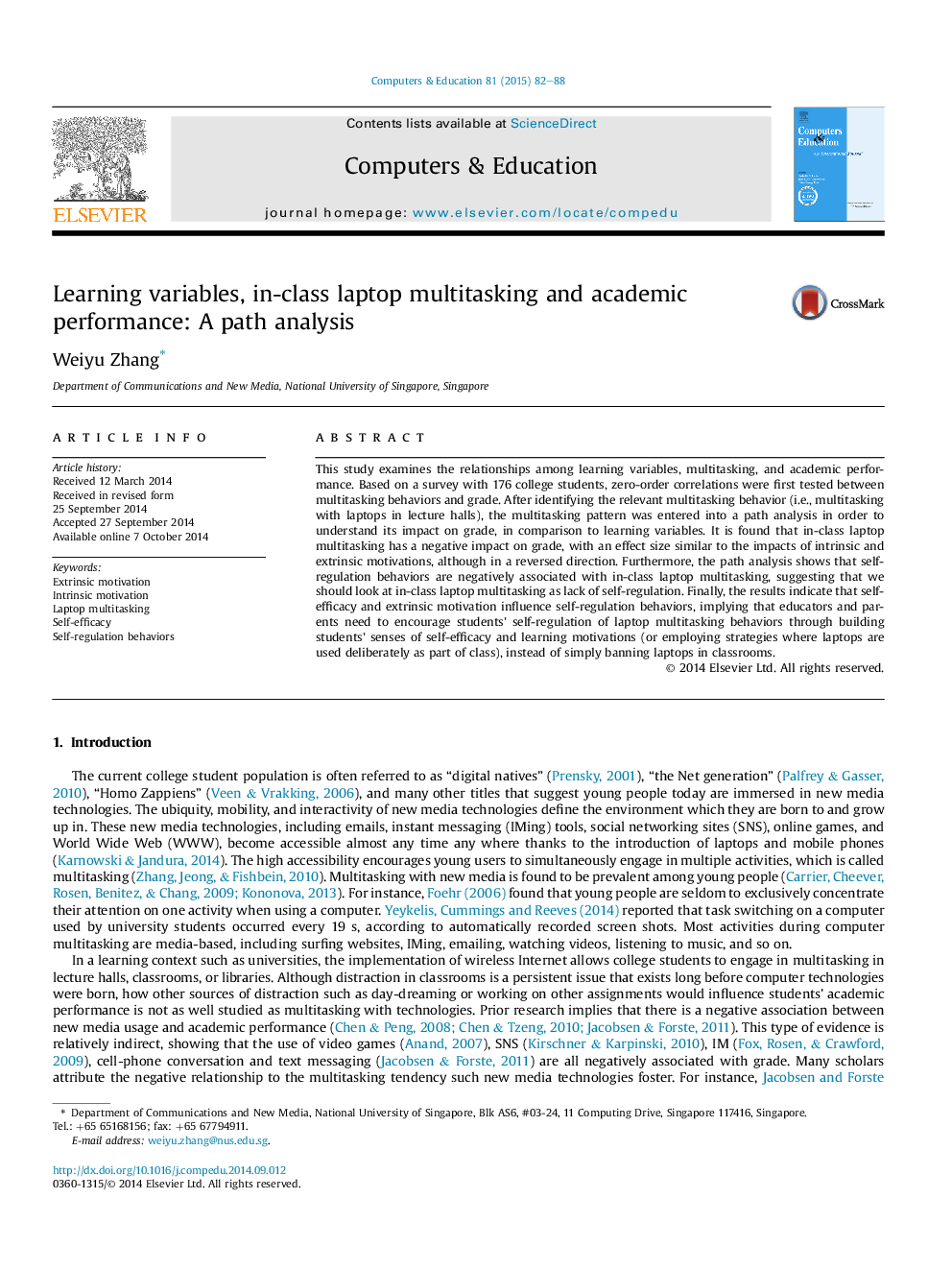| Article ID | Journal | Published Year | Pages | File Type |
|---|---|---|---|---|
| 348325 | Computers & Education | 2015 | 7 Pages |
•In-class laptop multitasking has a negative impact on grade.•The effect size of multitasking is similar to intrinsic and extrinsic motivations.•Self-regulation behaviors are negatively associated with multitasking.•The paper recommends building students' self-efficacy and learning motivations.
This study examines the relationships among learning variables, multitasking, and academic performance. Based on a survey with 176 college students, zero-order correlations were first tested between multitasking behaviors and grade. After identifying the relevant multitasking behavior (i.e., multitasking with laptops in lecture halls), the multitasking pattern was entered into a path analysis in order to understand its impact on grade, in comparison to learning variables. It is found that in-class laptop multitasking has a negative impact on grade, with an effect size similar to the impacts of intrinsic and extrinsic motivations, although in a reversed direction. Furthermore, the path analysis shows that self-regulation behaviors are negatively associated with in-class laptop multitasking, suggesting that we should look at in-class laptop multitasking as lack of self-regulation. Finally, the results indicate that self-efficacy and extrinsic motivation influence self-regulation behaviors, implying that educators and parents need to encourage students' self-regulation of laptop multitasking behaviors through building students' senses of self-efficacy and learning motivations (or employing strategies where laptops are used deliberately as part of class), instead of simply banning laptops in classrooms.
